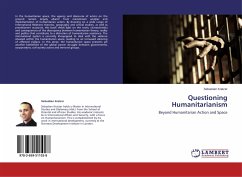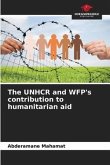In the humanitarian space, the agency and discourse of actors on the ground remain largely absent from mainstream analysis and implementation of humanitarian action. By drawing on a wide range of International Relations theories, geography and critical studies, as well as practitioners' accounts, this book sheds light on the roots, characteristics and consequences of the discrepancy between humanitarian theory, reality and politics that contribute to a distortion of humanitarian assistance. The international system is currently ill-equipped to deal with the violence situated within the humanitarian space, leading to an increased silencing of affected civilians. In this sense, the humanitarian space presents yet another battlefield of the global power struggle between governments, corporations, civil society actors and terrorist groups.
Bitte wählen Sie Ihr Anliegen aus.
Rechnungen
Retourenschein anfordern
Bestellstatus
Storno








